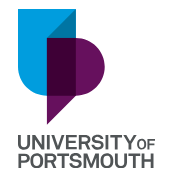About Photography MA in University of Portsmouth
If you've got a passion for photography and a relevant undergraduate qualification, or equivalent industry experience, this MA Photography course is your perfect way to take your creative career further.
On this course, you'll extend your photographic work to postgraduate level and hone your authorial voice and engage with the debates that inform and underpin photographic practice. You'll have many opportunities to network, publicise and market your work outside of the University too, so once you graduate, you'll be better prepared for life in the creative sector.
You'll also have gained the knowledge and skills required to work effectively in the photographic industry or in a number of broader creative roles – such as writing, curating, picture editing and education.
Careers and opportunities
The course may lead to opportunities in freelance photography, curating, exhibiting, assisting in a commercial photographic environment, visual content provision, picture editing, or PhD research / research-related careers.
Through seminars, project work, training and work experience, the MA Photography course will help you to engage with the creative industries of photography and its ancillary industries to be better equipped for employment and further career progression.
What can you do with a Photography degree?
The MA course may lead to opportunities in:
- Freelance photography
- Curating
- Exhibiting
- Assisting in a commercial photographic environment
- Visual content provider
- Picture editing
- PhD research / Research related careers
What jobs can you do with a Photography degree?
Roles our graduates may take on include:
- Research-related careers
- PhD study
- Freelance photographers
- Assisting work
- Picture editors
- Editorial photography
- Setting up own businesses
- Digital printing and retouching
- News industry
- Picture agencies
- Publishing
- Curation
- Galleries and museums
- Design
- Media industry
- Teaching
Academic qualification equivalents
-
For entry to our Master's programmes, you will generally need to have a Bachelor's degree with at least 2nd Class Honours to be considered.
You may be admitted to Master's programmes with a lower level degree if you have work experience relevant to the degree applied for. Find out more about Recognised Prior Learning.
English language requirements (one of the below):
- IELTS: A minimum of IELTS band 6.5–7.0, with no component below 6.0.
- TOEFL iBT: For most of our Master's degrees, you need a score of 91 with a minimum of:20 in Reading 19 in Listening 21 in Speaking 20 in Writing.
- PTE: At least 61 points, with a minimum of 54 in each component
University of Portsmouth Highlights
| Type of Institution |
Public |
| Campus Setting |
Urban |
| Endowment |
9.9 Lakhs GBP |
| Number of Campuses |
2 - Langstone Campus and University Quarter |
| Percentage of International Students |
26% |
| Total number of Professors |
1,126 academic and Research staff |
| Student Satisfaction Rate |
Secured 88% Student Satisfaction |
| Graduate Job Rate |
97.5% |
| International fee |
£11,250 per annum |
| Type of Academic Programs |
UG, PG, Ph.D., research and Pathway Courses |
| Mode of Program |
Full time |
| Average Graduate Salary |
£13,900 - £15,900 a year |
University of Portsmouth Average Tuition Fees And Other Expenses
| Expenses |
Estimated cost in pounds |
| Undergraduate Fee |
£13,900 – £15,900 approx |
| Postgraduate Fee |
£13,900 – £15,900 approx |
| Accommodation |
£5000 approx |
| Cost of living |
£7000 - £10,000 approx |
| Placement year fee |
£2400 |
